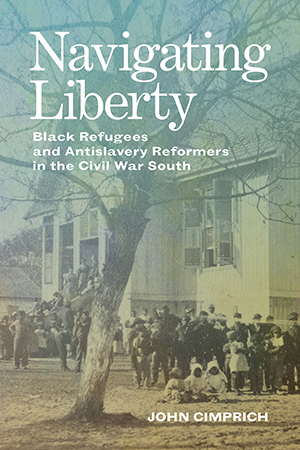
248 pages / 6.00 x 9.00 inches / 1 halftone, 2 maps
History / United States - Civil War Period | History / United States - Southern History | Social Studies / African-American History
When thousands of African Americans freed themselves from slavery during the American Civil War and launched the larger process of emancipation, hundreds of northern antislavery reformers traveled to the federally occupied South to assist them. The two groups brought views and practices from their backgrounds that both helped and hampered the transition out of slavery. While enslaved, many Blacks assumed a certain guarded demeanor when dealing with whites. In freedom, they resented northerners’ paternalistic attitudes and preconceptions about race, leading some to oppose aid programs—included those related to education, vocational training, and religious and social activities—initiated by whites. Some interactions resulted in constructive cooperation and adjustments to curriculum, but the frequent disputes more often compelled Blacks to seek additional autonomy.
In an exhaustive analysis of the relationship between the formerly enslaved and northern reformers, John Cimprich shows how the unusual circumstances of emancipation in wartime presented new opportunities and spawned social movements for change yet produced intractable challenges and limited results. Navigating Liberty serves as the first comprehensive study of the two groups’ collaboration and conflict, adding an essential chapter to the history of slavery’s end in the United States.
John Cimprich is retired professor of history at Thomas More University and author of Slavery’s End in Tennessee, 1861–1865 and Fort Pillow, a Civil War Massacre, and Public Memory.
“John Cimprich has produced a deeply researched, sophisticated, and clearly written study of the relationship between white northern antislavery activists and freedom-seeking African Americans during the American Civil War. This book will be important to anyone interested in race relations, the Civil War era, and African American history.”—Stanley Harrold, author of Subversives: Antislavery Community in Washington, D.C., 1828–1865
“Cimprich delivers a thoroughly explored and sensitively analyzed examination of the complicated interaction of southern African Americans emerging from slavery and northern philanthropists who attempted to assist them during the Civil War. His book details how freedpeople’s lofty aspirations collided with well-intentioned but sometimes unenlightened visions that whites held about the postwar racial order.”—John R. Kaufman-McKivigan, editor of The Frederick Douglass Papers and author of Forgotten Firebrand: James Redpath and the Making of Nineteenth-Century America
Found an Error? Tell us about it.